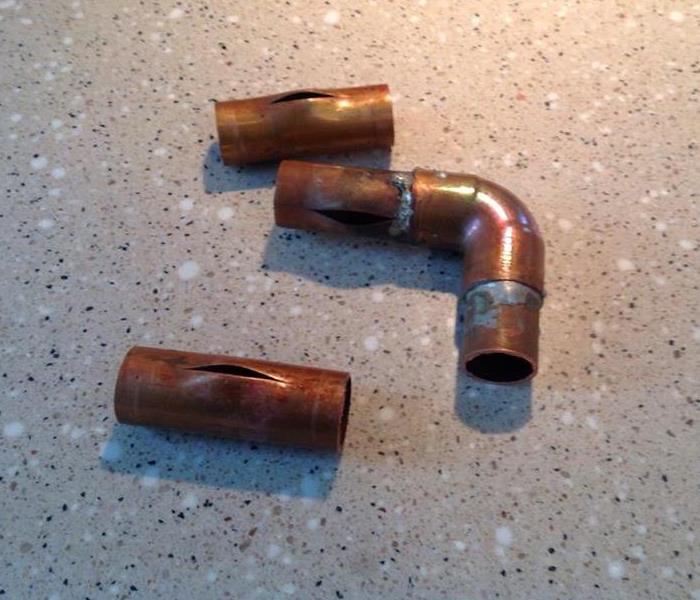Pipe Burst? How to avoid it
2/17/2018 (Permalink)
You’ve just parked your car in sub-freezing temperatures and you can’t wait to warm up. You get home and get ready to hop into a warm shower. You turn the knob, and nothing comes out. Your pipes are frozen. When you have problems with your pipes, it can be heart stopping. Your mind will immediately turn towards the potential bills, possible flooding, and the amount of time repairs will take. Burst pipes are one of the most common causes of water damage and you should know how to protect your home.
Protect your pipes from the cold
When temperatures fall below freezing, your pipes could be in trouble. Water expands as it freezes, and your pipes contract when they get cold. This combination of events can be detrimental to your home. Once your pipes burst, all you can do is deal with the damage. The only way to mitigate the effects is to take preventative action. Check out these tips!
In extreme temperatures, keep at least one of your faucets on. You definitely don’t need to turn it on full force, but a nice steady drip will keep water flowing through your pipes and prevent freezing.
Pipes located along outside walls and windows are at a much greater risk of freezing. Make sure that you direct heat to these areas when possible. Open your basement door and any closets that might house pipes so that heat can reach them. Open the cabinets in your kitchen to allow warm air to reach these important pipes.
Seal any leaks that allow cold air to seep into your home. Use weather stripping or plastic on windows and doors to add insulation.
You may need to raise the temperature in your home. Turn your ceiling fans on reverse to help push warm air back down to the coldest parts of your house.
Consider purchasing heat tape from your local home improvement store. You can place it on your pipes without professional help and it will aid you in preventing cracks in your pipes.
Before winter weather sets in, make a habit of disconnecting all outdoor hoses. This will allow pipes to completely drain so that there isn’t excess water hanging around when freezing temperatures hit.
Don’t let your heat drop below 55 degrees. If you’re going out of town, make sure you plan ahead so you don’t return to a flooded basement.






 24/7 Emergency Service
24/7 Emergency Service